In recent years, energy drinks have become increasingly popular as people seek quick and convenient ways to boost their energy levels. One such energy drink is Bang Energy, which has gained a lot of attention for its bold flavors and high caffeine content.
While some people swear by Bang Energy as a pre-workout or pick-me-up, others are concerned about the potential health risks associated with its consumption.
In this article, we’ll explore the ingredients, nutrition facts, and potential health effects of Bang Energy to help you determine whether this popular energy drink is good or bad for you.
What is Bang Energy?
Caffeine is present in nearly all energy drinks, including Bang Energy, to boost energy and stimulate brain functions like reaction time, concentration, and memory. Bang Energy is known for its bold flavors and high caffeine content, with some flavors containing up to 300 milligrams of caffeine per serving.
Bang Energy is also sugar-free and contains a blend of amino acids, vitamins, and other ingredients that are intended to enhance physical and mental performance. The drink is manufactured by Bang Energy LLC and is available in a variety of flavors, including Cotton Candy, Blue Razz, and Peach Mango.
Nutrition Facts of Bang Energy
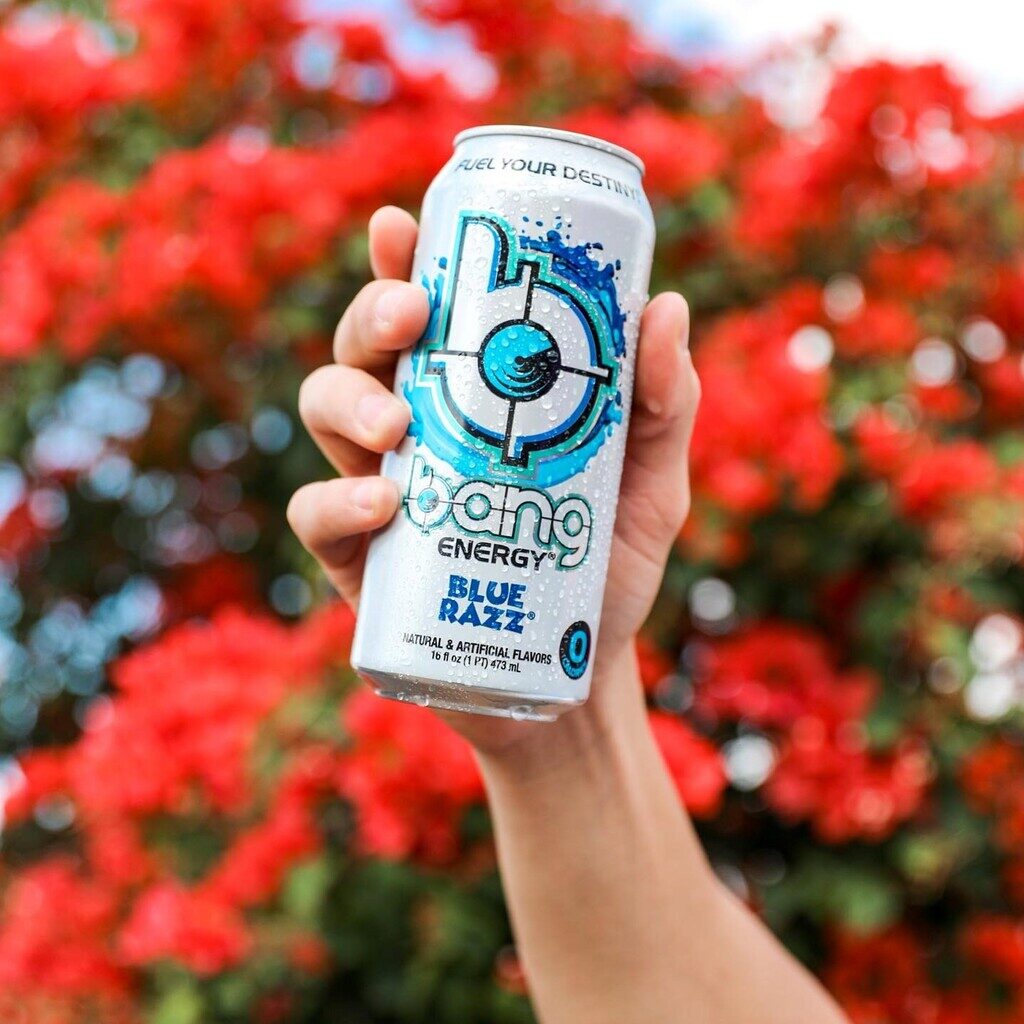
Here are the nutritional facts of a typical 16 fl oz can of Bang Energy:
- Calories: 0
- Total fat: 0g
- Cholesterol: 0mg
- Sodium: 40mg
- Total carbohydrates: 0g
- Sugars: 0g
- Protein: 0g
Here are the ingredients in Bang Energy and what they are:
- Carbonated water: This is the main ingredient in Bang Energy, which provides hydration and the fizzy sensation.
- Citric acid: A weak organic acid that is often used as a preservative and flavoring agent.
- Natural flavors: These are derived from natural sources and are used to enhance the taste of the drink.
- Caffeine anhydrous: A form of caffeine that is dehydrated to a powder form. It is commonly used in energy drinks and supplements as a stimulant.
- Sodium benzoate: A preservative that helps to prevent the growth of bacteria and mold.
- Potassium citrate monohydrate: A form of potassium that is commonly used as a food additive and is often used to regulate acidity in beverages.
- Sucralose: A non-nutritive sweetener that is commonly used in low-calorie and sugar-free products. It is derived from sugar and is much sweeter than regular sugar.
- Potassium phosphate dibasic: A form of potassium that is often used as a food additive and is used to regulate acidity in beverages.
- Magnesium chloride: A form of magnesium that is commonly used as a supplement and is believed to have numerous health benefits.
- L-leucine: An essential amino acid that is commonly used in supplements and is important for muscle growth and repair.
- Calcium chloride: A form of calcium that is commonly used as a food additive and is often used to regulate acidity in beverages.
- Acesulfame potassium: A non-nutritive sweetener that is commonly used in low-calorie and sugar-free products. It is much sweeter than regular sugar.
- Potassium sorbate: A preservative that helps to prevent the growth of bacteria and mold.
It’s important to note that Bang Energy contains high levels of caffeine and other stimulants, which may not be suitable for everyone. Additionally, some of the ingredients, such as artificial sweeteners and preservatives, may have potential health risks when consumed in large amounts.
As with any dietary supplement or beverage, it’s a good idea to consult with a healthcare professional before consuming Bang Energy, especially if you have any underlying medical conditions or concerns.
Pros and Cons
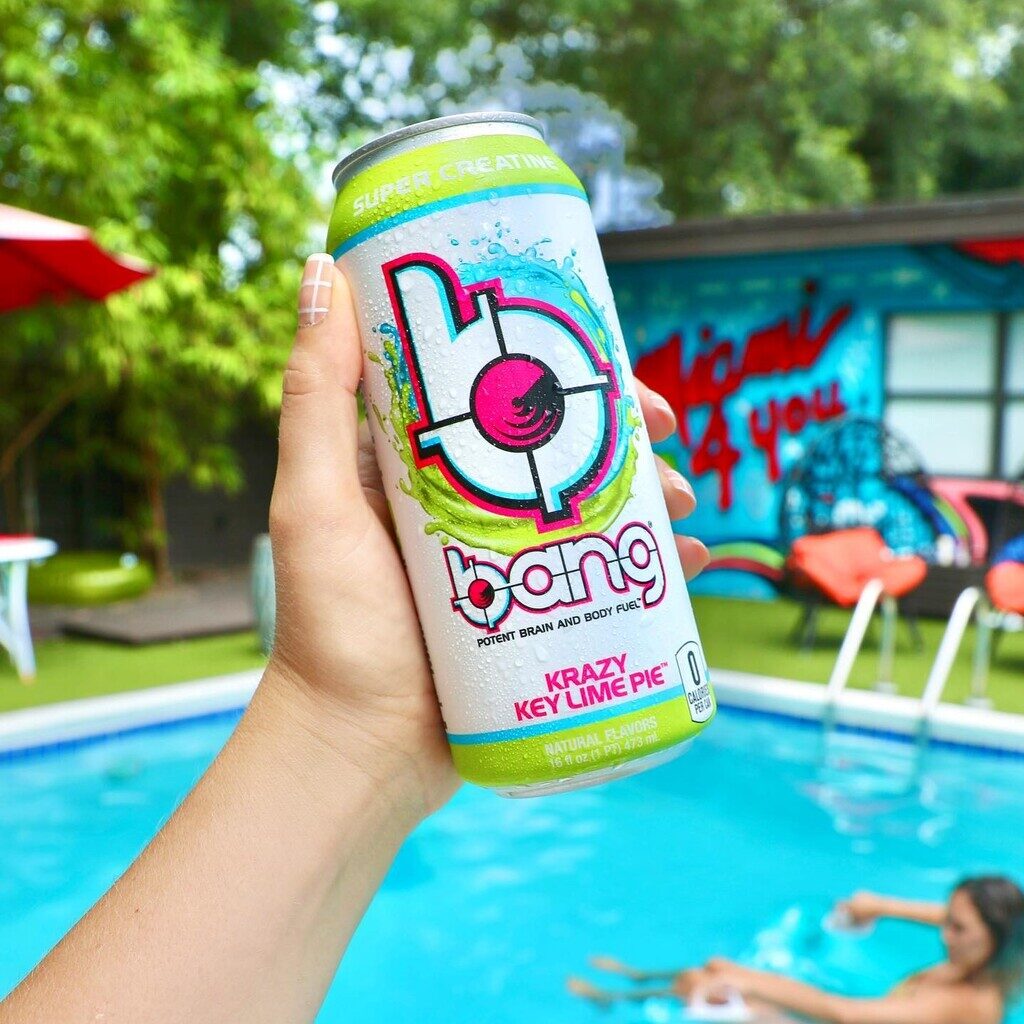
Here are some potential pros and cons of Bang Energy:
Pros:
- Boosts Energy: Bang Energy contains a high amount of caffeine, which is intended to provide a quick boost of energy and enhance mental focus.
- Sugar-Free: Bang Energy is sugar-free, which makes it a suitable option for individuals who are looking to reduce their calorie or sugar intake.
- Zero Calories: Bang Energy contains zero calories, which makes it a suitable option for individuals who are looking to reduce their calorie intake.
- Variety of Flavors: Bang Energy is available in a variety of flavors, which may make it more enjoyable and easier to consume than other supplements.
Cons:
- High Caffeine Content: Bang Energy contains a high amount of caffeine, which can cause negative side effects in some individuals, such as jitters, anxiety, and insomnia.
- Artificial Sweeteners: Bang Energy is sweetened with artificial sweeteners, which may have negative health effects in some individuals.
- Performance-Enhancing Compounds: The long-term effects of the performance-enhancing compounds in Bang Energy are not well-understood, and some experts are concerned about their safety and efficacy.
- Cost: Bang Energy can be more expensive than other energy drinks or supplements, which may not be affordable for everyone.
It’s important to note that individual results may vary, and some individuals may experience more pros or cons than others depending on their unique health status and needs.
Additionally, it’s important to speak with a healthcare provider or registered dietitian before adding Bang Energy or any other supplement to your diet, particularly if you have any concerns or medical conditions.
Health Benefits of Bang Energy
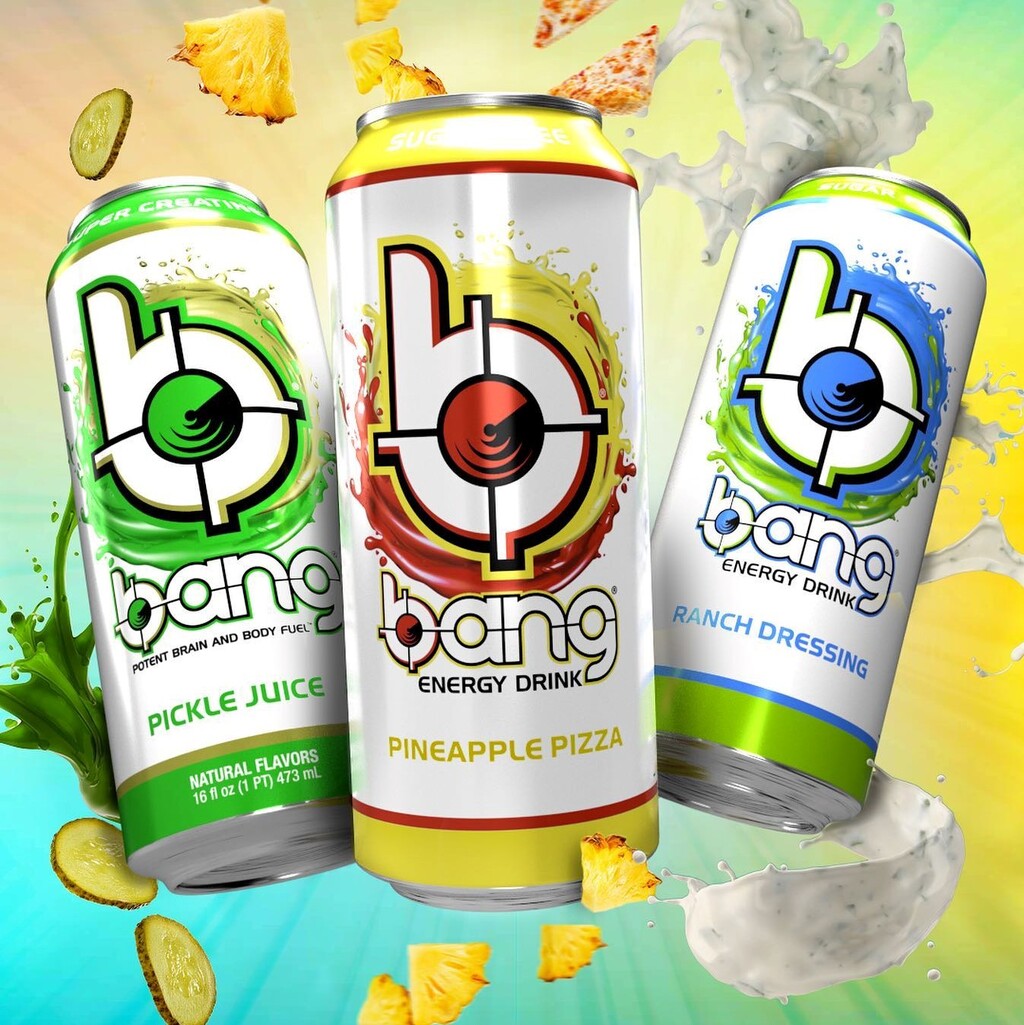
It is important to note that there is limited research on the health benefits of Bang Energy specifically. However, some of the ingredients in Bang Energy may have potential health benefits, including:
- Caffeine: Caffeine is a well-known stimulant that can increase alertness, improve cognitive function, and boost athletic performance. One study found that caffeine supplementation can improve exercise performance and delay fatigue in endurance activities.
- Magnesium: Magnesium is an essential mineral that is involved in numerous bodily processes, including muscle and nerve function, heart health, and bone health. Magnesium supplementation may help to reduce symptoms of anxiety and depression in individuals with magnesium deficiency.
- Amino acids: Bang Energy contains a blend of amino acids, including L-leucine, which is important for muscle growth and repair. A 2017 review published in the Journal of the International Society of Sports Nutrition found that supplementing with amino acids can help to improve muscle protein synthesis and reduce muscle soreness after exercise.
It’s important to note that while some of the ingredients in Bang Energy may have potential health benefits, the drink itself has not been extensively studied in clinical trials or research studies.
Additionally, individual results may vary and more research is needed to fully understand the potential health effects of Bang Energy and its ingredients.
Furthermore, Bang Energy contains high levels of caffeine and other stimulants, which may not be suitable for everyone, and some of the ingredients, such as artificial sweeteners and preservatives, may have potential health risks when consumed in large amounts.
What Do Medical Experts Say About Bang Energy?
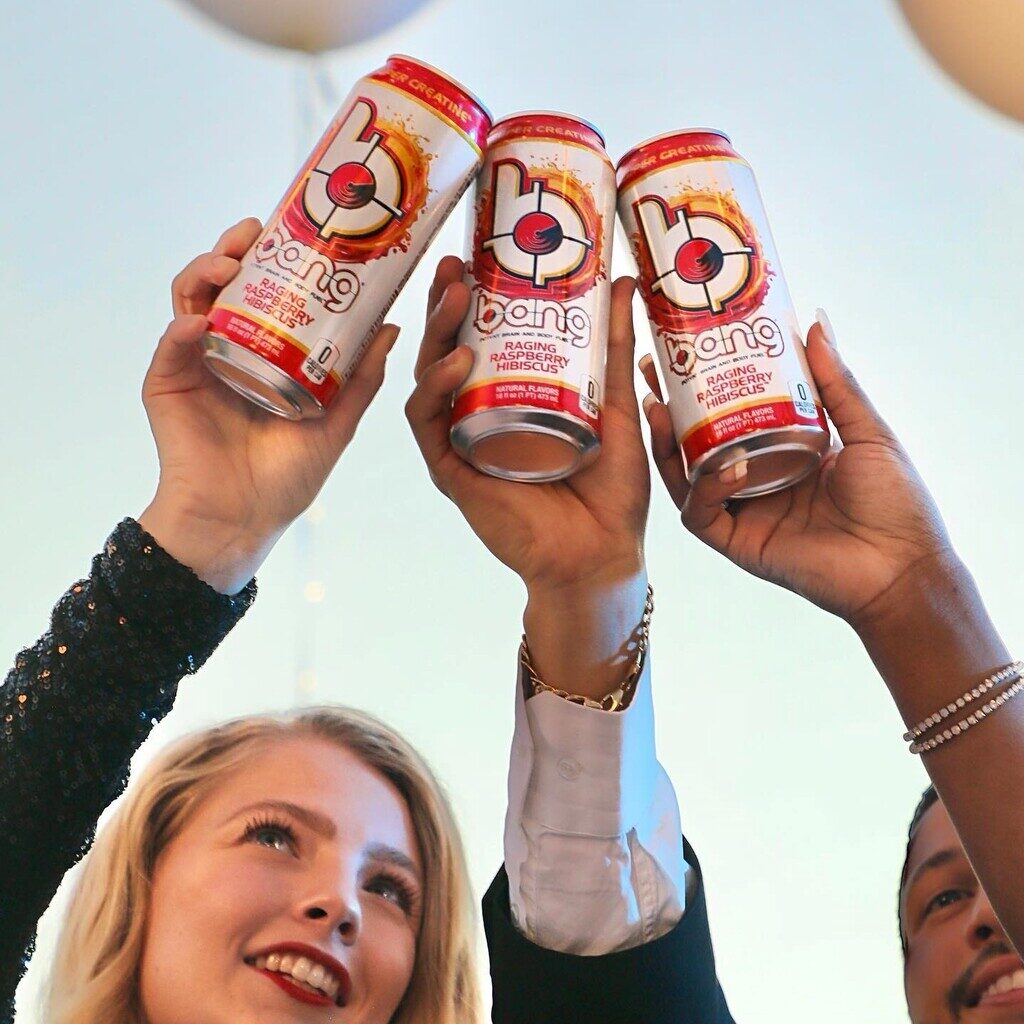
There is limited research on Bang Energy specifically, but some medical experts have expressed concerns about the high levels of caffeine and other stimulants in energy drinks in general. Here are a few quotes from medical experts on the topic:
- Dr. Jennifer Appleyard, Chief of Allergy and Immunology at St. John’s Episcopal Hospital, notes: “Energy drinks like Bang can be dangerous for some people, especially those with underlying heart or blood pressure issues. The high levels of caffeine and other stimulants can cause heart palpitations, high blood pressure, and even heart attacks in some cases.”
- Caffeine causes a diuretic effect, making your body pass more urine. Moderate daily caffeine intake will not cause dehydration. However, Dr. John Higgins, a sports cardiologist at McGovern Medical School at the University of Texas Health Science Center at Houston, cautions: “Consuming high amounts of caffeine and other stimulants in energy drinks like Bang can cause dehydration, electrolyte imbalances, and other health issues. It’s important to be mindful of the potential risks associated with these drinks, especially if you have any underlying medical conditions.”
- Dr. Andrew Freeman, a cardiologist and Director of Cardiovascular Prevention and Wellness at National Jewish Health, warns: “Energy drinks like Bang are not regulated by the FDA in the same way that food and drugs are, so we don’t have a clear understanding of the long-term effects of these drinks on health. It’s important to be cautious when consuming these drinks, especially if you have any underlying medical conditions.”
It’s important to note that these quotes are general opinions on energy drinks and may not necessarily apply specifically to Bang Energy.
As with any dietary supplement, it’s a good idea to consult with a healthcare professional before consuming Bang Energy or any other energy drink, especially if you have any underlying medical conditions or concerns.
Scientific Studies on Bang Energy
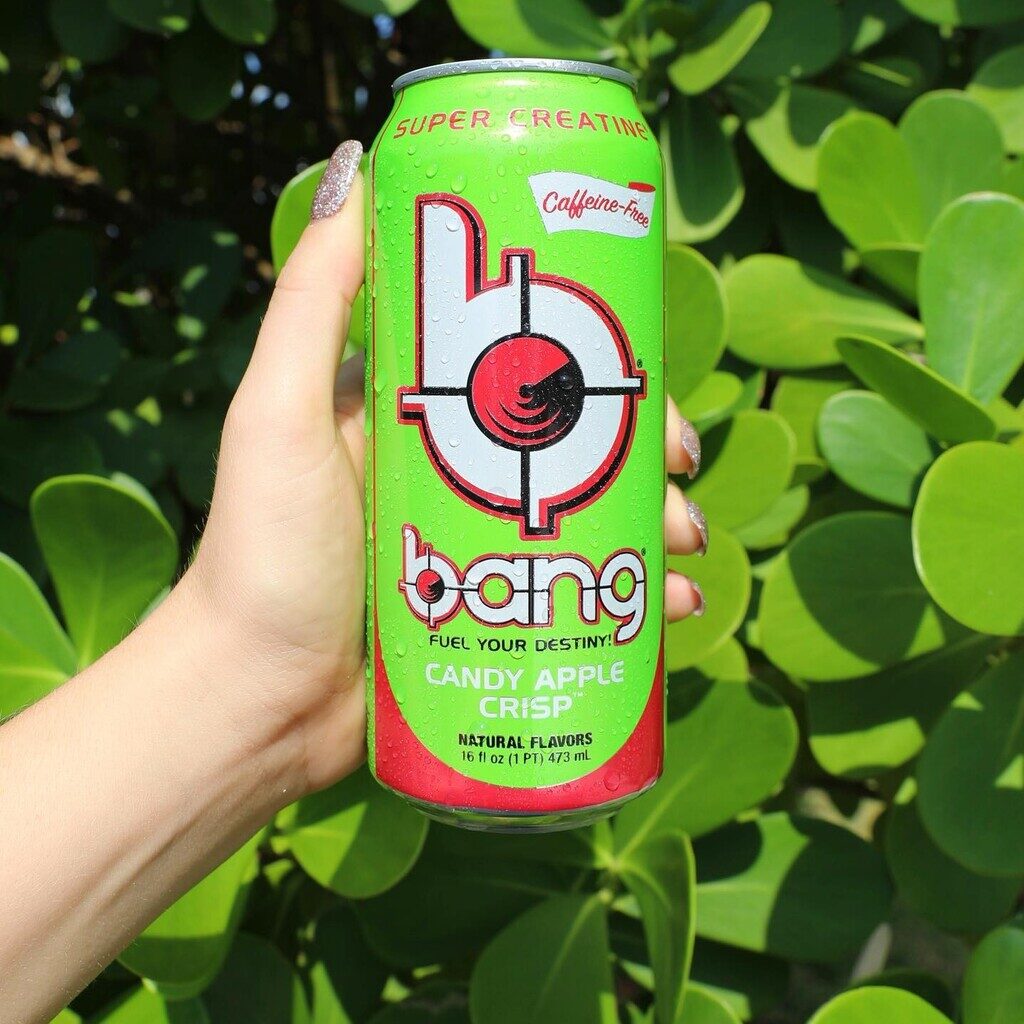
There are limited studies on Bang Energy specifically, but here are a few studies on the potential health effects of energy drinks in general:
- Combining Bang® Pre-Workout Master Blaster supplements with 4 weeks of resistance exercise training resulted in greater gains in maximal strength than resistance training with a placebo. Moreover, the supplement did not cause any adverse effects on resting hemodynamics or clinical blood safety markers.
- A 2017 review published in the Journal of the American Heart Association found that energy drink consumption may increase the risk of adverse cardiovascular events, particularly in young people. The study suggests that energy drinks may cause changes in blood pressure and heart rate, and may interact with medications or other substances.
- A study found that adolescents who frequently consume energy drinks may be at higher risk for unhealthy behaviors such as smoking, binge drinking, and drug use. The study suggests that energy drink consumption may be a marker of other risky behaviors.
- A 2017 study found that consuming energy drinks can cause changes in heart function, particularly in young people. The study suggests that energy drinks may cause changes in heart rate and rhythm, and may increase the risk of heart attacks and other cardiovascular events.
- Evidence found that energy drink consumption is associated with an increased risk of adverse health effects in children and teenagers. The study suggests that energy drinks may cause changes in blood pressure, heart rate, and electrolyte levels, and may interact with medications or other substances.
It’s important to note that these studies are not specific to Bang Energy and may not necessarily apply to this particular brand. Additionally, individual results may vary and more research is needed to fully understand the potential health effects of energy drinks and their ingredients.
Who Should Avoid Bang Energy?
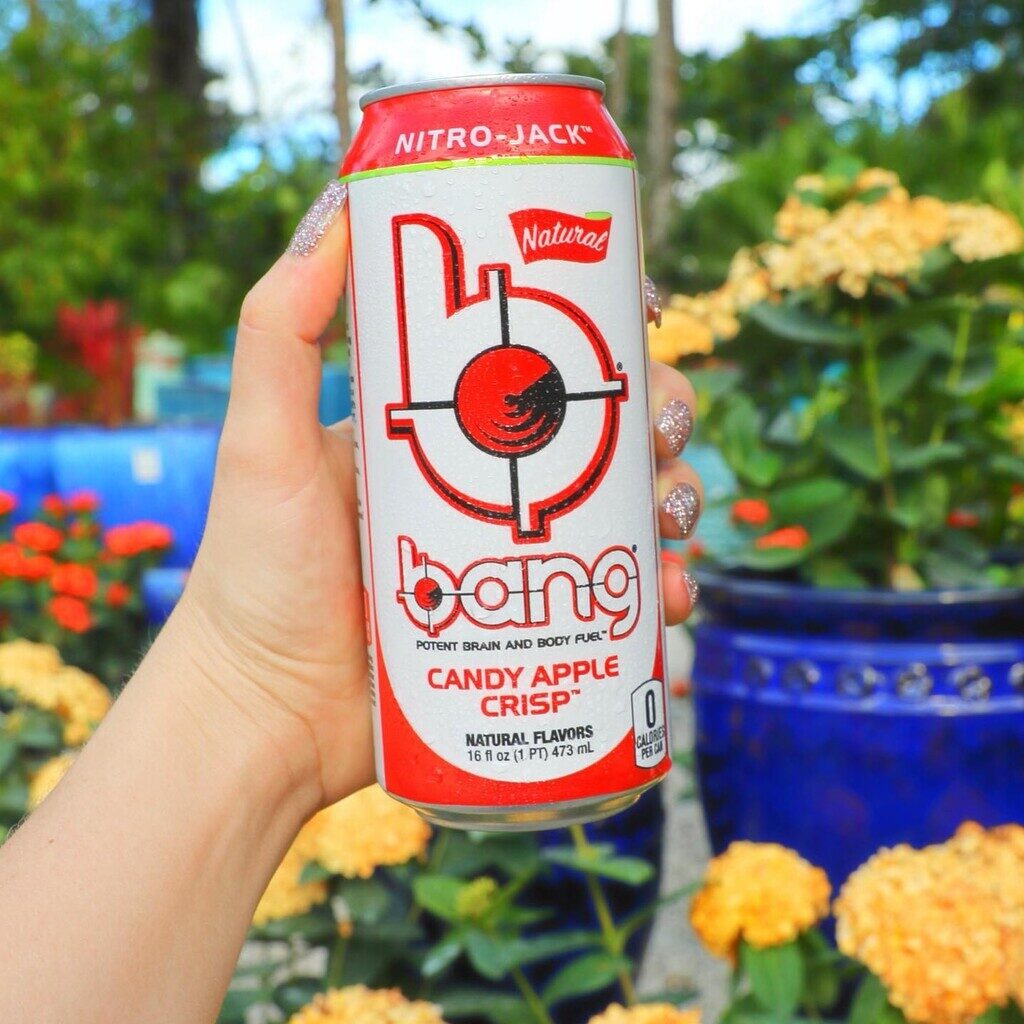
There are several groups of people who may want to avoid or limit their consumption of Bang Energy, including:
- Children and adolescents: Energy drinks like Bang are not recommended for children and adolescents due to their high levels of caffeine and other stimulants. According to a study, energy drinks can cause changes in heart rate, blood pressure, and electrolyte levels in children and adolescents, and may interact with medications or other substances.
- Pregnant or nursing women: Experts advise pregnant or nursing women to limit their caffeine intake to no more than 200 milligrams per day, which is roughly equivalent to one 12-ounce cup of coffee. Energy drinks like Bang can contain much higher levels of caffeine and other stimulants, which may have negative effects on fetal development or breastfeeding infants.
- Individuals with heart or blood pressure issues: Energy drinks like Bang can cause changes in heart rate and blood pressure, which may be dangerous for individuals with underlying heart or blood pressure issues.
- Individuals with caffeine sensitivity or intolerance: Some people are more sensitive to the effects of caffeine than others, and may experience symptoms such as nervousness, jitters, or insomnia after consuming energy drinks like Bang. In addition, some individuals may have an intolerance or allergy to one or more of the ingredients in Bang Energy, such as taurine or B vitamins.
It’s important to note that these recommendations are based on general health guidelines and may not necessarily apply to everyone.
As with any dietary supplement, it’s a good idea to consult with a healthcare professional before consuming Bang Energy or any other energy drink, especially if you have any underlying medical conditions or concerns.
Alternatives to Bang Energy
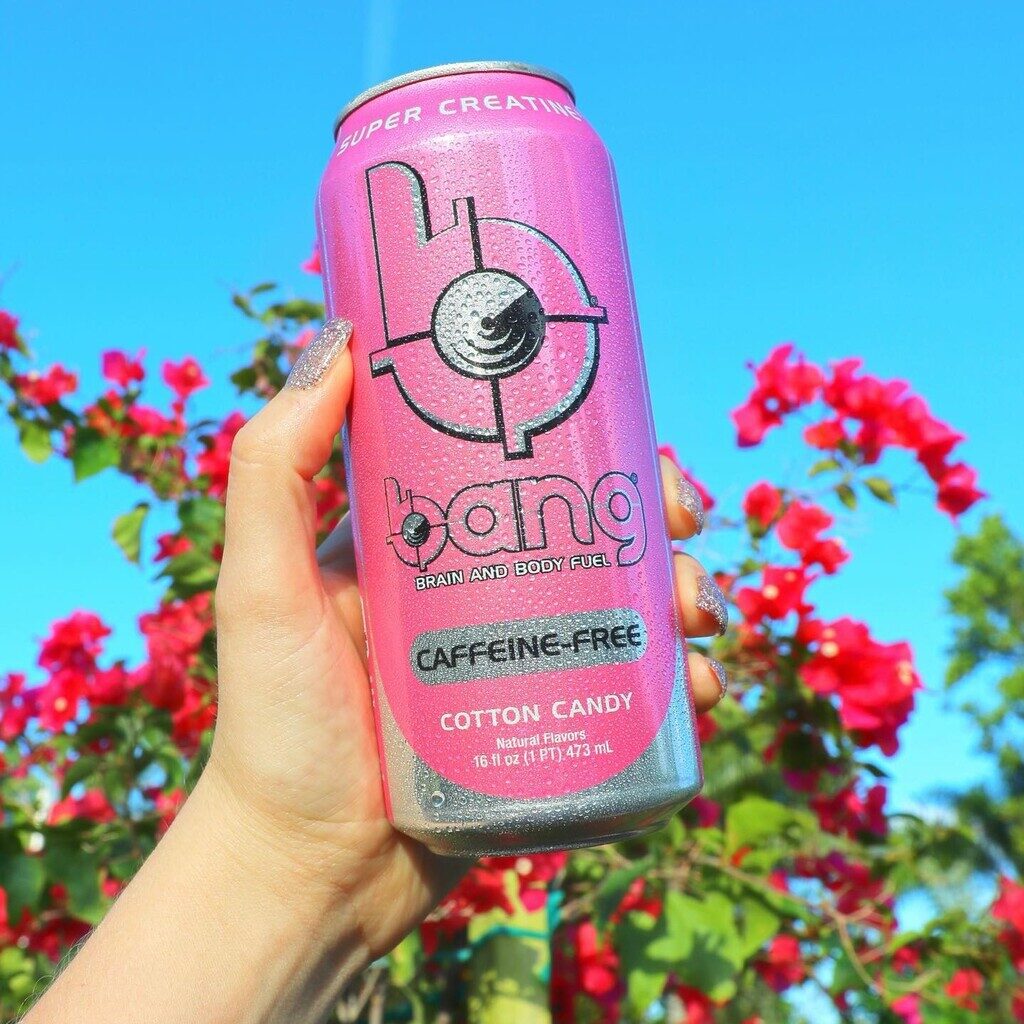
Here are three alternatives to Bang Energy:
1. REIZE Energy Drink: REIZE is a powdered energy drink that comes in convenient sachets that you can mix with water or your favorite beverage. It contains a blend of caffeine, taurine, and several B vitamins, as well as natural ingredients like ginseng and green tea extract. REIZE has a more moderate caffeine content than some other energy drinks, with 50mg of caffeine per sachet.
2. Zipfizz Energy Drink: Zipfizz is a low-calorie energy drink that contains a blend of caffeine, green tea extract, and several vitamins and minerals. It also includes electrolytes like potassium and magnesium to help keep you hydrated. Zipfizz comes in a variety of flavors and is free from artificial flavors, colors, and preservatives.
3. Guayaki Yerba Mate: Yerba mate is a natural source of caffeine that comes from the leaves of a South American plant. Guayaki offers a range of yerba mate-based energy drinks that are organic, non-GMO, and Fair Trade Certified. They come in several flavors and contain about 80mg of caffeine per can, which is less than some other energy drinks.
FAQ

What is the recommended serving size for Bang Energy?
The recommended serving size for Bang Energy is one can (16 ounces) per day.
How much caffeine does Bang Energy contain?
Bang Energy contains varying amounts of caffeine depending on the flavor, with some flavors containing up to 300 milligrams of caffeine per serving.
Is Bang Energy safe to consume?
The safety of Bang Energy depends on individual health status, goals, and needs. While Bang Energy may provide some potential benefits, it also comes with potential risks and drawbacks.
It’s important to speak with a healthcare provider or registered dietitian before adding Bang Energy or any other supplement to your diet.
Can Bang Energy help with weight loss?
There is no conclusive evidence to suggest that Bang Energy can help with weight loss. While it is sugar-free and low in calories, its overall impact on weight loss will depend on factors such as diet, exercise, and individual metabolism.
Can Bang Energy be consumed before a workout?
Bang Energy is marketed as a pre-workout supplement and can be consumed before a workout to enhance focus and energy. However, it’s important to consume Bang Energy in moderation and in combination with a balanced diet and regular physical activity.
Is Bang Energy suitable for vegetarians or vegans?
Most flavors of Bang Energy are suitable for vegetarians, as they do not contain any animal-derived ingredients. However, some flavors may contain artificial flavors or colors that are not suitable for vegans.
Is it safe to consume Bang Energy every day?
Consuming Bang Energy every day may not be safe for everyone, particularly individuals who are sensitive to caffeine or who have certain medical conditions. It’s important to speak with a healthcare provider or registered dietitian before consuming Bang Energy or any other supplement on a regular basis.
Conclusion: Is Bang Energy Bad For You?
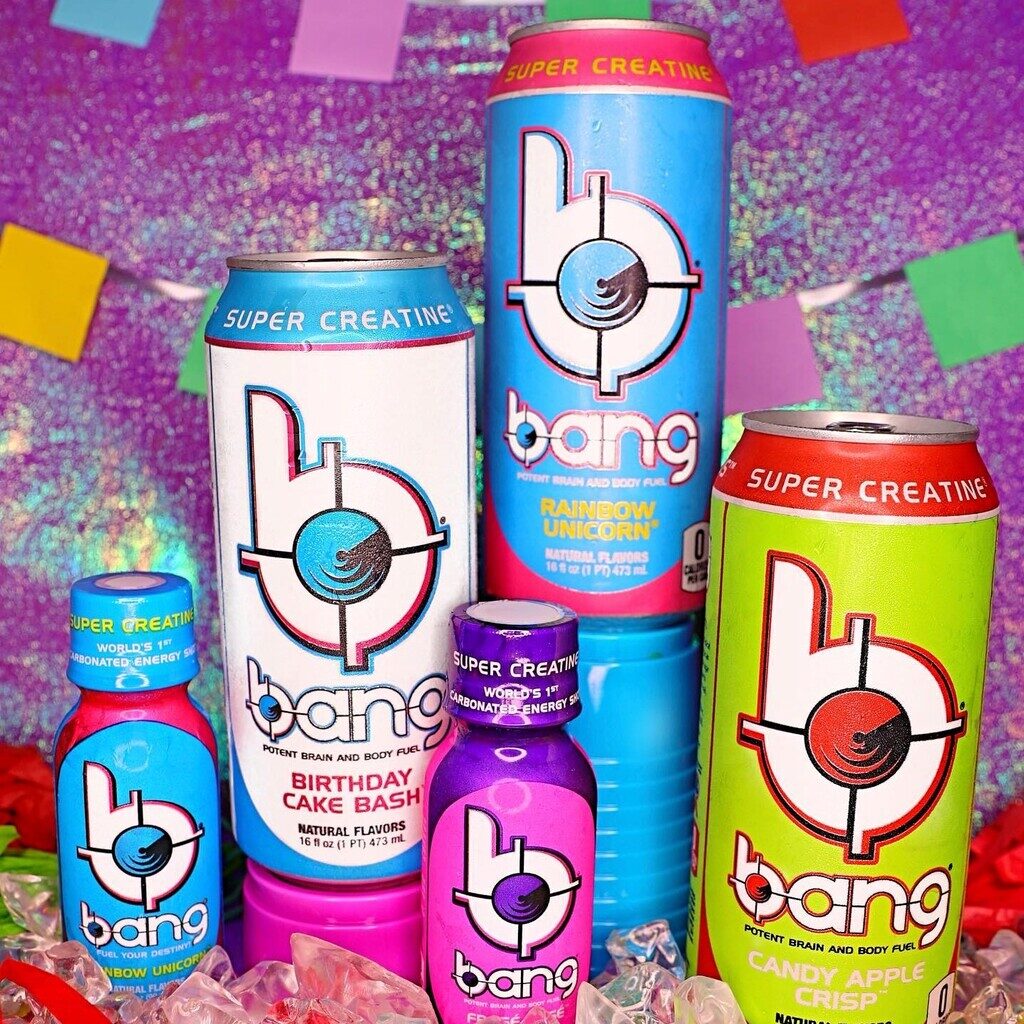
The question of whether Bang Energy is bad for you is a complex one and the answer will depend on individual health status, goals, and needs.
While Bang Energy does contain some potential health benefits, such as improved energy and focus and enhanced physical performance, it also comes with some potential risks and drawbacks.
One of the biggest concerns with Bang Energy is its high caffeine content, which can cause negative side effects in some individuals, such as jitters, anxiety, and insomnia.
Additionally, Bang Energy contains artificial sweeteners, which may have negative health effects in some individuals, and the long-term effects of the performance-enhancing compounds in Bang Energy are not well-understood.
Overall, consuming Bang Energy in moderation and in combination with a balanced diet and regular physical activity may be suitable for some individuals who are looking for a quick energy boost or performance enhancement.
However, it’s important to speak with a healthcare provider or registered dietitian before adding Bang Energy or any other supplement to your diet, particularly if you have any concerns or medical conditions.
It’s also important to prioritize your overall health and well-being above all else and to consider healthier alternatives when possible.
References:
- DO;, S. A. B. K. (n.d.). Cognitive and physiological effects of an “energy drink”: An evaluation of the whole drink and of glucose, caffeine and herbal flavouring fractions. Psychopharmacology. Retrieved April 12, 2023, from https://pubmed.ncbi.nlm.nih.gov/15549275/
- Academic.oup.com. (n.d.). Retrieved April 12, 2023, from https://academic.oup.com/jn/article/129/6/1102/4721899
- A;, S. (n.d.). Effects of caffeine on human behavior. Food and chemical toxicology : an international journal published for the British Industrial Biological Research Association. Retrieved April 12, 2023, from https://pubmed.ncbi.nlm.nih.gov/12204388/
- Smirmaul, B. P. C., de Moraes, A. C., Angius, L., & Marcora, S. M. (2017, January). Effects of caffeine on neuromuscular fatigue and performance during high-intensity cycling exercise in moderate hypoxia. European journal of applied physiology. Retrieved April 12, 2023, from https://www.ncbi.nlm.nih.gov
- Boyle, N. B., Lawton, C., & Dye, L. (2017, April 26). The effects of magnesium supplementation on subjective anxiety and stress-A systematic review. MDPI. Retrieved April 12, 2023, from https://www.mdpi.com
- MF;, S. B. H. L. W. R. P. G. A. W. (n.d.). Effects of caffeine on blood pressure response during exercise in normotensive healthy young men. The American journal of cardiology. Retrieved April 12, 2023, from https://pubmed.ncbi.nlm.nih.gov
- Killer, S. C., Blannin, A. K., & Jeukendrup, A. E. (2014, January 9). No evidence of dehydration with moderate daily coffee intake: A counterbalanced cross-over study in a free-living population. PloS one. Retrieved April 12, 2023, from https://www.ncbi.nlm.nih.gov
- authors, A., Schwarz, N. A., & Authors’ contributionsNAS served as the principal investigator and study coordinator and was responsible for securing grant funding and developing the experimental design. NAS was the primary author of the manuscript and performed statistical analyses. NA. (n.d.). Effect of bang® pre-workout master Blaster® combined with four weeks of resistance training on lean body mass, maximal strength, mircorna expression, and serum IGF-1 in men: A randomized, double-blind, placebo-controlled trial. Taylor & Francis. Retrieved April 12, 2023, from https://www.tandfonline.com
- Randomized controlled trial of high‐volume energy drink versus caffeine … (n.d.). Retrieved April 12, 2023, from https://www.ahajournals.org
- Rienzi, G. (2016, March 15). Energy drinks linked to unhealthy behavior among adolescents. The Hub. Retrieved April 12, 2023, from https://hub.jhu.edu/magazine
- Wassef, B., Kohansieh, M., & Makaryus, A. N. (2017, November 26). Effects of energy drinks on the cardiovascular system. World journal of cardiology. Retrieved April 12, 2023, from https://www.ncbi.nlm.nih.gov/pmc/articles/PMC5714807/
- Oberhoffer, F. S., Li, P., Jakob, A., Dalla-Pozza, R., Haas, N. A., & Mandilaras, G. (2022, March 21). Energy drinks: Effects on blood pressure and heart rate in children and teenagers. A randomized trial. Frontiers in cardiovascular medicine. Retrieved April 12, 2023, from https://www.ncbi.nlm.nih.gov/pmc/articles/PMC8978997/
- U.S. Department of Health and Human Services. (n.d.). Science update: Caffeine consumption during pregnancy may lead to slightly shorter child height. Eunice Kennedy Shriver National Institute of Child Health and Human Development. Retrieved April 12, 2023, from https://www.nichd.nih.gov/newsroom.
- Antonio, J., Kenyon, M., Horn, C., Jiannine, L., Carson, C., Ellerbroek, A., Roberts, J., Peacock, C., & Tartar, J. (2019, July 22). The effects of an energy drink on psychomotor vigilance in trained individuals. MDPI. Retrieved April 12, 2023, from https://www.mdpi.com/2411-5142/4/3/47
You might also like to check out some recently published reviews:

Leave a Reply